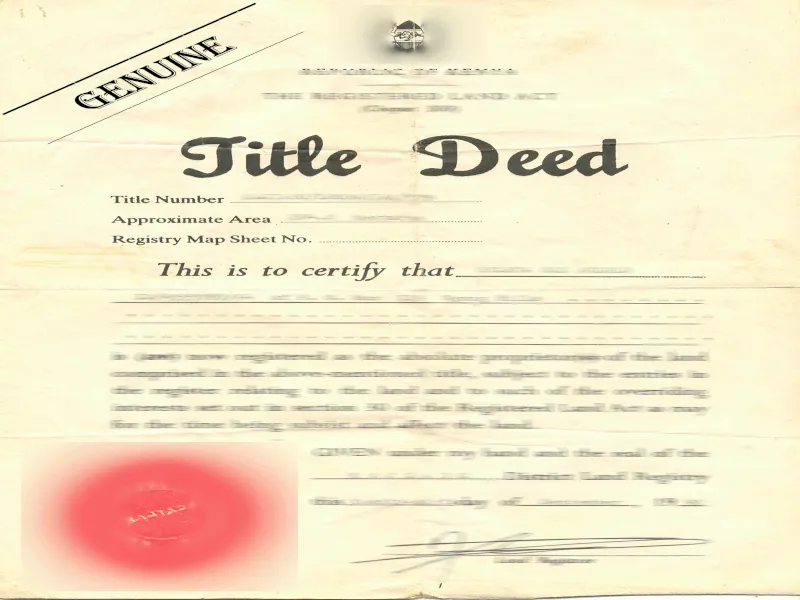Introduction
- Doctrine of Part – performance of contract is contained in section 53 A of TPA .
- This section is added in the Act in 1929 by an amendment.
- The title “Part Performance ” itself suggests that a part of contract has been performed by a party
- The rule focuses upon saving the interest of a party who has performed some part of his contract and also willing to perform remaining part of the obligation under the contract
Doctrine of Part Performance
Basically it safeguard transferee from transferor and prevent transferer from taking any advantage on account of non-registration of document .
Provided that
The transferee has performed his part of the contract in furtherance of the contract
And
The transferee has taken possession of some part of the property .
E.g. A is a builder and de las with selling of flats . B is a person who wants to purchase a Flat form A . Cost of flat is 20 lakh rupees . Now A & B entered into an agreement that B will give him (A ) 12 Lakh Rupees advance and remaining 8 lakh rupees will be given by B after six Months of possession. Now the contract between A and B was not registered but is in written form.
After two months A thought that he could have got 25 lakh rupees for the same flat , so he decided to evict B for that flat on ground that registry of flat is not done by him in the name of B.
Here B can take shelter of Section 53 A of TPA ,1882 . So according to this section A cannot evict B from the flat merely on the account of non registration of the document , where B is ready to perform his part of obligation and possession of flat is also with B .
Note : But if A sells the same flat to C and C don’t have any notice or knowledge of part performance than this doctrine will not operate . As the shelter to B under this section is available only against A (tranferer) & not against C (subsequent buyer ) .
So in this case rights of subsequent buyer shall not be affected as —
- He has paid consideration
- He had no Notice of the contract
- He had no knowledge of part performance
Thus, it may be Noticed that nothing in this section shall affect the rights of a transferee for consideration, who has no notice of the contract or not having any knowledge of part performance.
So, Doctrine of Part performance shall not affect the rights of a Subsequent transferee.
Ingredients of Section 53-A
Bombay High Court in Kamalabai Laxman Pathak v. Onkar Parsharam Patil, has given emphasis on the ingredients of the Section 53-A which are as follows:
In Vasanti v. Venugopal honorable supreme court had reiterated that the following conditions are needed to be met for the doctrine of part performance
- Contract for Transfer of immovable property:
For the application of this section, the first condition is that there must be a contract and the contract must be transfer of immovable property for value.
- Written contract:
The contract must be written. Section 53 –A is not applicable if the contract for transfer is oral. In V.R. Sudhakara Rao v. T.V. Kameswari, it was held that the benefit of section 53-A is not available to a person who is in possession of property based on oral agreement of sale. Writing alone is not sufficient. The contract must also be duly executed. That is to say, it should be signed by the transferor or by any other person on his behalf.
- Valid Contract:
It may be noted that Section 53-A is applicable only where contract for the transfer is valid in all respects. It must be an agreement enforceable by law under the Indian Contract Act, 1872.
- Immovable property:
This section is applicable only in case of transfer of immovable property. It does not apply to an agreement for the transfer of movable property even though supported with consideration. The defense of Part Performance is not available in respect of possession of movables (Hameed v. Jayabharat Credit & Investment Co. Ltd and Ors).
- Transfer for consideration:
The written contract must be for the transfer of an immovable property for consideration. The written contract on the basis of which the property has been possessed, must clearly suggest the transfer of property. If the document is ambiguous or confusing, this section cannot be made applicable. It is one of the necessary ingredients of section 53-A that the terms of written contract must be ascertainable with reasonable certainty (Hamida v. Humer and Ors.)
- Possession in furtherance of Contract:
The Transferee has taken possession or continues possession in part performance of the contract or, has done some act in furtherance of the contract (A.M.A Sultan (deceased by LRs) and Ors. v. Seydu Zohra Beevi).
- Some Act in furtherance of the contract:
Taking possession is not only the method of part performance of contract. If the transferee is already in possession of the property, then, after the contract of transfer, he has to do some further act in part performance of the contract (Nathulal v. Phoolchand).
- Transferee is willing to perform his part of contract:
Section 53-A is based on the principle of Equity. Equity says that one who seeks equity must do equity. Therefore, where a person claims protection of his possession over a land under section 53-A, his own conduct must be equitable and just. It is an essential condition for the applicability of this section that the transferee must be willing to perform his part of contract (Sardar Govindrao Mahadik and Anr. vs. Devi Sahai and Ors Govind).
“He who seeks equity must do equity”says the equity principle , as reiterated in the case of B Paramashivaiah vs Mr. Shankar Prasad . In the case of Andhra Graphite P Ltd vs Jobbing Syndicate it was laid that if the tranferee wants to take advantage of this clause , he or she must also fulfill his or her obligations under the contract . He must be willing and able to fulfill his contractual obligations .
In the case of Rani Sambhi vs. Lt Col Retd R.L. Vashishth , absolute and unconditional readiness and willingness are required . In the case of Chinnaraj vs Sheik Davood Nachiar , the benifit under the clause cannot be granted to a person who refuses to fulfill his contractual obligations .
Impact of Amendment of 2001 on Doctrine of part performance
On 2001 amendment, the word registered in omitted and the doctrine of part performance is applicable even to the unregistered of document and it is not retrospective.
2001, Section 49 of the Registration Act 1908 was amended, and the exemption allowing unregistered papers to be admitted was repealed. As a result, the legal situation was exactly the same as it was prior to 1929, when any claim involving real estate required the backing of a registered document. Only registered papers can be acknowledged to apply Section 53A as a result of the 2001 change. An individual, for example, cannot claim Section 53A protection based on an unregistered agreement. Part performance, on the other hand is restricted to contracts that have been partially completed. A registered sale contract also suggests that the transaction has been completed in its entirety. A recorded agreement to sell a property, on the other hand, does not automatically mean that the parties have reached an agreement. As a result, the transferee may utilize paperwork, such as a registered agreement to transfer the property, to plead part performance. The revision significantly reduced the scope of Section 53A. Despite this, the Section will continue to apply to legal violations other than a lack of registration.
Difference between Indian and English Law
Difference between English law of part performance and the Indian law of part performance
- The contract must not be written or signed by the transferor whereas Section 53A deals with the doctrine of part performance and states that the contract must be in writing as well as signed by the transferor.
- Right under this is an equitable right Where as the right under this doctrine is statutory right
- It creates a title in the transferee where as it does not create a title in the transferee
Conclusion:
In a diversified and populated country like India, where a large Section of the population is unaware of the legal standards that must be met in certain situations, the number of cases where misinformed and uneducated clients are easily misled is rather high.The regularity with which courts invoke Section 53A demonstrates this. Given the foregoing, the required step of statutorily recognizing the concept of the part performance was taken. While requiring the presence of a signed agreement limits the scope of use, the major requirements limit the scope of legal abuse. Nonetheless, given the Indian people’s social and financial situation, the change that removed the exemption allowing the use of unregistered papers for Section 53A purposes is likely to undermine the provision’s goal. Even this section act as a shield to the unaware people who performed property transaction occasionally.
_______________________________________________________________________



